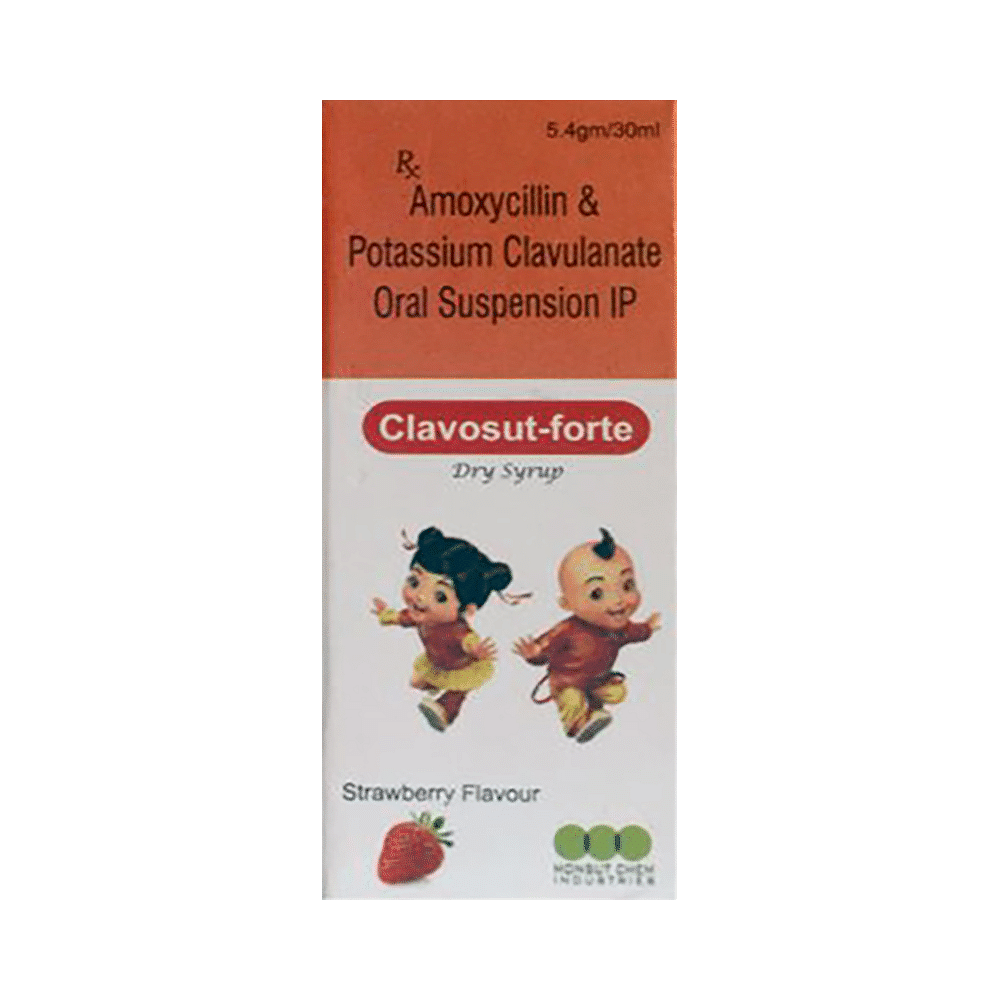
Vimcv Duo Dry Syrup
Manufacturer
Hazecure Pharma Pvt Ltd
Salt Composition
Amoxycillin (400mg) + Clavulanic Acid (57mg)
Key Information
Short Description
Vimcv Duo Dry Syrup is an antibiotic medicine that helps treat bacterial infections of the ear, nose, throat, chest, lungs, teeth, skin, and urinary tract.
Dosage Form
Dry Syrup
Introduction
Vimcv Duo Dry Syrup is an antibiotic medicine that helps treat bacterial infections of the ear, nose, throat, chest, lungs, teeth, skin, and urinary tract. It is capable of killing bacteria that have become resistant to other therapies and thus also helps treat tuberculosis that is resistant to other treatments.
Directions for Use
Your child must complete the entire course of antibiotics. Stopping too soon may cause the bacteria to multiply again or cause another infection.
Safety Information
Side Effects
Bitter taste in the mouth after intake Diarrhea Itchy rash, facial swelling, or breathing difficulty (stop medication and report to the doctor immediately)
How it works
Vimcv Duo Dry Syrup is an antibiotic. It has two active agents amoxycillin and clavulanic acid. Amoxycillin works by preventing the formation of the bacterial protective covering (cell wall) essential for the survival of the bacteria. Whereas clavulanic acid serves a special purpose of inhibiting an enzyme (beta-lactamase) that is produced by resistant bacteria.
Quick Tips
Complete the entire course of antibiotics Encourage your child to drink plenty of water in case diarrhea develops Never give Vimcv Duo Dry Syrup until and unless prescribed by the doctor Do not give Vimcv Duo Dry Syrup to treat common cold and flu-like symptoms caused by viruses Check 'expiry' before giving Vimcv Duo Dry Syrup to your child
Related Medicines

Tanoxy-CV Dry Syrup

Moxifed CV Duo Dry Syrup

Pureclav Dry Syrup

Amocare-CV Duo Dry Syrup

Clavspark Duo Dry Syrup

Priclav DS Dry Syrup

Clavosut Forte Dry Syrup

Augduo Dry Syrup

Styclav DS Dry Syrup

Vindclav DS Dry Syrup
Frequently asked questions
Can other medicines be given at the same time as Vimcv Duo Dry Syrup?
Vimcv Duo Dry Syrup may interact with other medications. It is crucial to inform your child's doctor about all medications they are currently taking before starting Vimcv Duo Dry Syrup. Consult your child's healthcare provider before administering any medication to your child.
Can I get my child vaccinated while on treatment with Vimcv Duo Dry Syrup?
Most antibiotics do not interfere with vaccines and are generally safe for use alongside vaccinations. However, it's important to consult a healthcare professional before administering any medication to your child who is currently undergoing antibiotic treatment.
Which lab tests may my child undergo while taking Vimcv Duo Dry Syrup on a long-term basis?
Depending on the duration of treatment, periodic kidney and liver function tests might be recommended by your doctor to ensure your child's well-being.
Can I give a higher than the recommended dose of Vimcv Duo Dry Syrup to my child?
Providing an excess dose of this medicine can increase potential side effects. If you notice any worsening of symptoms, consult your doctor for further evaluation.
Can I stop giving Vimcv Duo Dry Syrup to my child when the symptoms are relieved?
Do not discontinue Vimcv Duo Dry Syrup without consulting a healthcare professional. Symptoms may improve before complete infection clearance, so continue following the prescribed dosage for a complete treatment period.
Can the use of Vimcv Duo Dry Syrup cause diarrhea?
Yes, Vimcv Duo Dry Syrup can lead to diarrhea as it is an antibiotic that kills harmful bacteria. Additionally, this medication may disrupt beneficial bacteria in your child's stomach, causing diarrhea. If diarrhea occurs, encourage your child to consume fluids like water or other drinks. Seek medical advice if diarrhea persists and notice signs of dehydration, such as infrequent urination with dark-colored, strong-smelling urine. Do not administer any additional medications without consulting a healthcare professional.
Do all viral common colds result in secondary bacterial infection?
Most cases of viral common colds do not lead to bacterial infections. Antibiotics are generally unnecessary for viral-based illnesses. Consult your child's doctor before administering any medication if you experience symptoms such as fever, severe cough, or chest pain.
The mucus coming out of my child’s nose is yellow-green. Is it a sign of a bacterial infection?
Yellow or green mucus during the common cold is not an indication that antibiotics are necessary. During a common cold, mucus thickens and changes color from clear to yellow or green. Most symptoms resolve within 7 to 10 days.
Is there any sign which shows that my child needs immediate medical attention?
Seek immediate medical attention if your child experiences severe allergic reactions (difficulty breathing, skin rashes), gastrointestinal issues such as diarrhea, or liver problems like weakness and vomiting. While rare, these signs are serious and require prompt medical attention.


